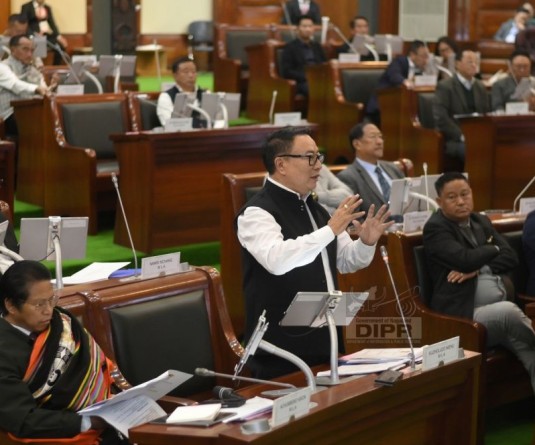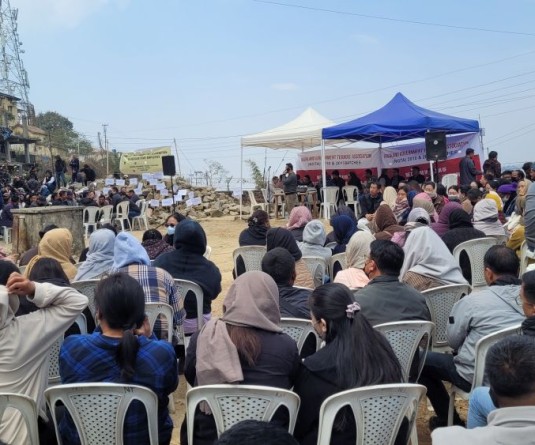
Dolly Kikon releases monograph on sexual violence in Dimapur
Morung Express News
Dimapur | January 23
Impunity and sexual violence have become entwined in a way that both have seeped into the veins of Naga society today.
‘Life & Dignity: Women’s Testimonies of Sexual Violence in Dimapur (Nagaland),’ a monograph highlighting the existence of sexual violence within the supposedly secure confines of the home was released on January 23.
Written by Dolly Kikon, currently a postdoctoral fellow at the Department of Social Anthropology, Stockholm University, the monograph spells out testimonies of survivors and the existing culture of impunity that needs be understood within the context of power relations, inequality and poverty in a militarised society.
With firsthand accounts of rape survivors, it examines how a general culture of impunity has further perpetrated crimes against women in Nagaland – the voiceless victims traumatised for life and the perpetrators going blameless. The shroud of impunity, according to the monograph, was partly, if not entirely, a legacy of decades of militarisation that Nagaland State and its populace have been enveloped in; and the Naga culture itself.
“…I illustrate how violence against women takes place within a larger ‘culture’ of impunity,” Kikon writes in one section captioned ‘Sexual violence and the culture of impunity in Dimapur’ and, continuing in the same breath, “… this monograph presents the voices of rape survivors and examines how Naga ‘culture’ is employed to propagate the existing impunity.”
The release-cum-discussion programme had in attendance Dr. Melvil Pereira, Director of the North Eastern Social Research Centre (NESRC), Guwahati. The NESRC is the publisher of the monograph.
“This book will be disturbing. And that disturbance should make us act,” commented Dr. Pereira, while stating that the theme of the book should reach everyone. According to him, the core essence of the book lies in the ‘Three Cs alluding to the ‘Context’ and ‘Culture’ against which it has been set, and the ‘Call’ to act. He said that the book keeping in context the militarised set up in a predominantly patriarchal environment sets out to capture how the culture of impunity the armed forces has enjoyed has been passed down consciously or unconsciously to the Naga society. “It has led to a culture of acquiescence… of acceptance (of what’s been handed).”
This culture of acceptance has, to a great extent, contributed to the impunity of perpetrators as Para Legal Volunteer, NK Keny indicated to an increasing trend of violence against women and children in the State. According to Keny, cases of divorce and domestic violence are high while measures for rehabilitation are virtually absent. “We have a lack of social support. We don’t support one another.” Stating the book to be a “genuine essay of real events,” Keny said that awareness of the reality is crucial.
Alongla Aier of Sisterhood highlighted the lack of awareness on the issue of violence against women and the practice of resigning or leaving it unto fate. “Most women here have no idea of the concept of violence against women… we are own enemies, we keep quiet.”
The monograph is available at the Sisterhood Network’s office in Burma Camp, Dimapur.






